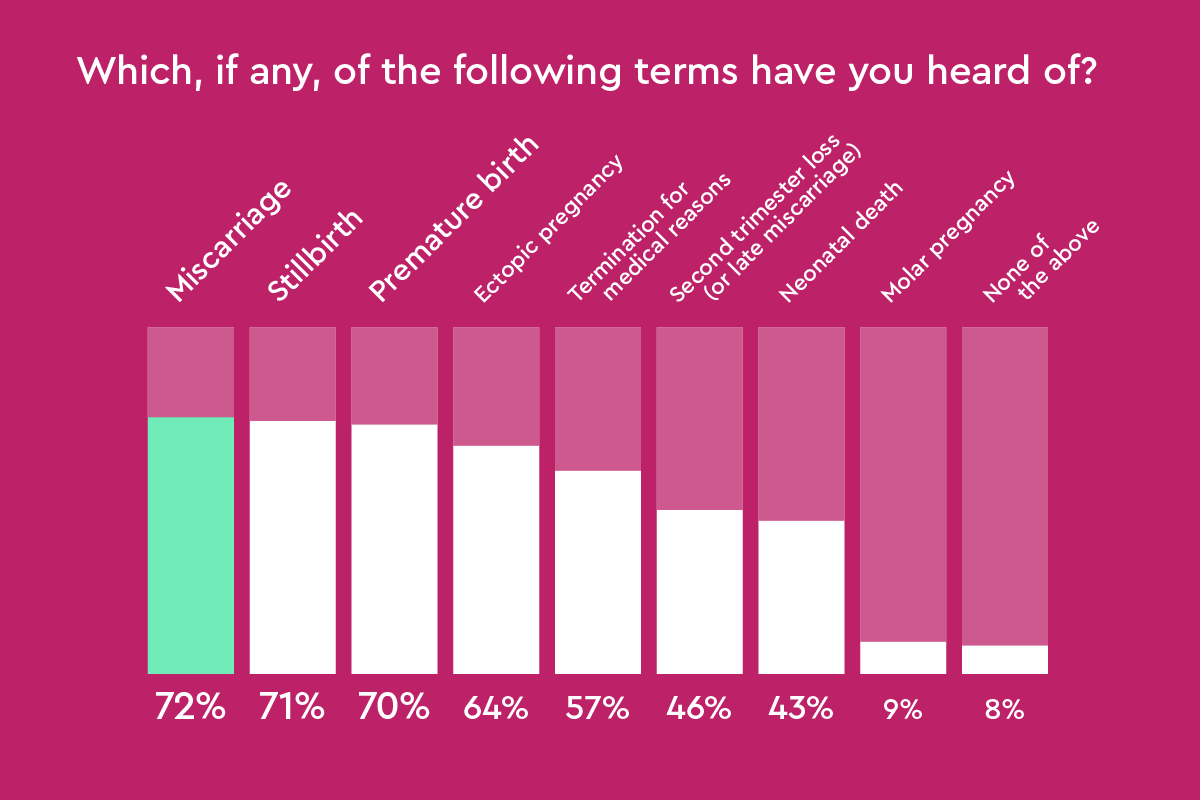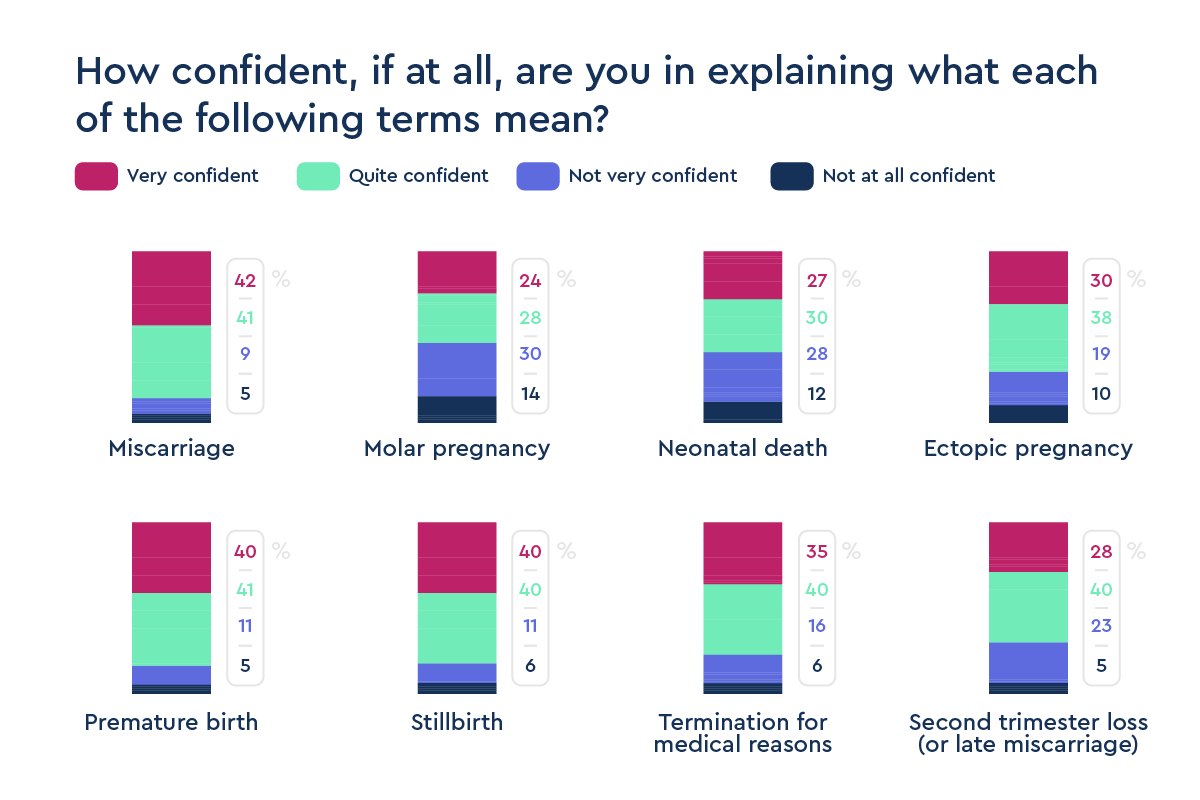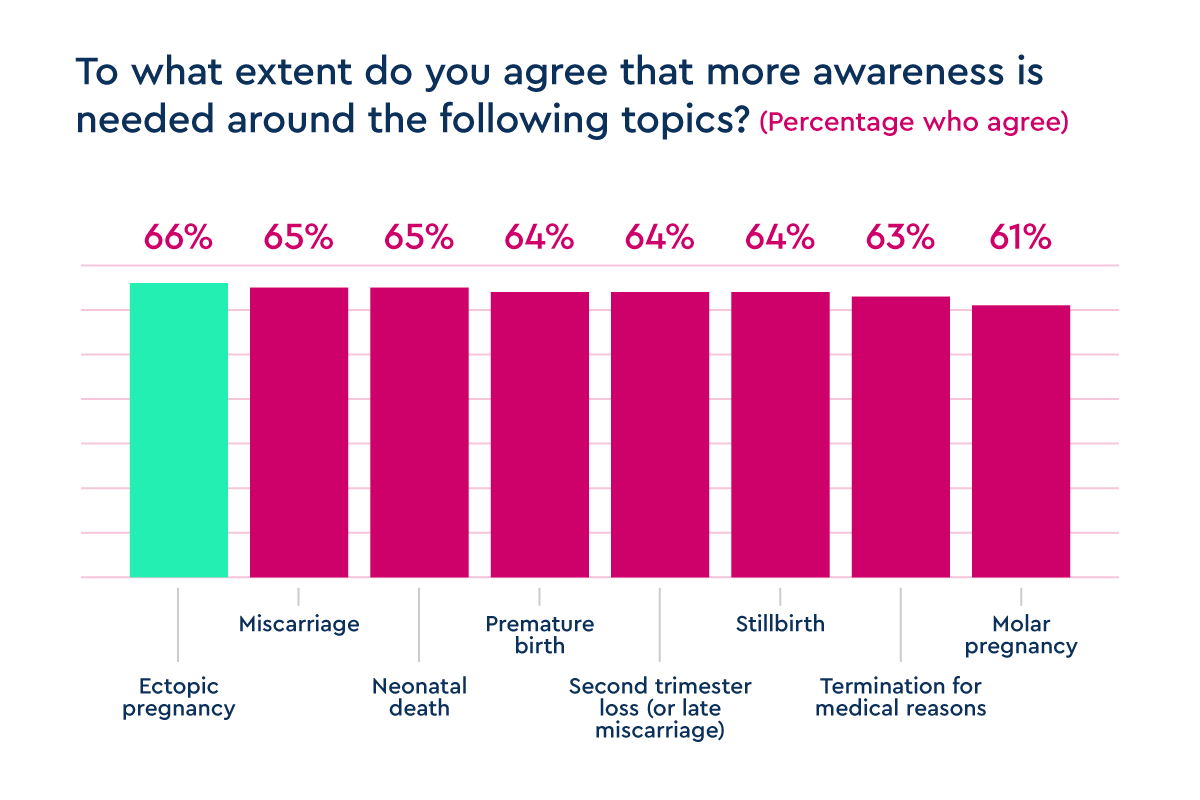Building awareness about baby loss
The loss of a baby is something that no one should ever have to experience, but tragically in 2020 alone there were 1,719 neonatal deaths in England and Wales, and across the UK, 2,638 stillbirths and around 250,000 miscarriages.
While the vast majority of people would feel heartbroken if someone they knew experienced baby loss, many of us are simply unaware of what different types of infant mortality mean, or indeed how is best to comfort and support someone experiencing such a tragedy. To coincide with Baby Loss Awareness Week (9 – 15 October 2022) we commissioned a survey of over 1,000 UK adults, to find out what the UK public really know about baby loss.
How awareness varies
While many of us experience grief in different aspects of our lives, the loss of a baby is deeply personal to those affected, and everyone will process the emotions in their own way. In the spirit of raising awareness and understanding, we wanted to find out how familiar people are with the terminology around different types of baby loss.

As the graph shows, there is a relatively high level of awareness of terms like miscarriage (72%) and stillbirths (71%), but on the other hand, less than 1 in 10 respondents have heard of molar pregnancy, where problems with the fertilised egg mean that the baby and placenta do not develop as they should, and the pregnancy will not be able to survive.
The survey suggests that even if terms like ‘miscarriage’ are widely known, there is still a large minority of people who may lack the ability to empathise in any way with someone who’s experienced baby loss.
We asked Amina Hatia, a qualified NHS midwife and Tommy’s Midwifery Manager, how people can feel more confident when it comes to talking about types of baby loss.
Amina says that people can make great strides by simply “learning a little about baby loss – such as the terminology of different types of baby loss and how many people are affected.”
Understand that feeling alone and isolated can be one of the most difficult things for those who experience baby loss, and so your willingness to be present in some way with them really matters – more than having exactly the right thing to say.
Barriers to building awareness
It’s one thing to have heard of a term like ‘miscarriage’, but another to feel confident explaining what it means. And as our survey shows, even when our respondents feel confident about identifying a type of baby loss, being able to articulate a definition is another matter.
Here’s a summary of what we found out:
- Despite the broad awareness of miscarriage, less than half (42%) of UK adults would feel ‘very confident’ explaining what it means.
- There was cautious confidence about some terms; for example, 38% would be ‘quite confident’ explaining what ectopic pregnancy means, while only 30% would be ‘very confident’.
- Just under half (44%) of respondents feel either ‘not very confident’ (30%) or ‘not at all confident’ (14%) about the definition of ‘molar pregnancy’.
It’s understandable why people may wish to tread carefully on the subject of baby loss, but Amina explains that acknowledging the loss – if done tactfully – can be a useful part of the healing process.
“Expressing human kindness is the most important thing. Acknowledge their loss – don’t shy away or feel that bringing it up will remind them. They are more than aware of their loss, the grief they feel is part of their DNA, so they are always aware – but knowing you are willing to speak about their loss will help them feel less alone.”
Amina adds that being aware of your own limited ability to help can be helpful in itself. “Knowing that it is not possible for anyone to ‘make this better’ allows you to be free to offer care and support without any pressure to solve anything.”
Awareness matters
One of the heartening aspects of the survey was even where gaps in knowledge exist, there is a widespread belief that more needs to be done when it comes to building awareness of baby loss.

- 65% agreed that more awareness is needed on the topics of miscarriage and neonatal death.
- The figure was even higher for the issue of ectopic pregnancy – 66% agree that more awareness is needed.
- Just 3% ‘strongly disagreed’ that miscarriage is an issue that requires greater awareness, while the figure for stillbirths was 2%.
It goes to show that Baby Loss Awareness Week is a crucial way of improving people’s understanding of these issues, and ultimately, giving those closest to us that space they need at a very difficult time.
As Amina says: “Being a kind, compassionate person is worth its weight in gold to someone who is feeling the sadness of baby loss.”
Tips for supporting someone after baby loss
What are the practical ways you can be there for someone when they need it most? Amina has shared some helpful insights on how to approach conversations around baby loss:
Avoid saying anything that expresses some sense of requirement of the bereaved person
Rather than burden a bereaved person with questions like “what do you need?”, Amina says that simple acts of kindness, like a card through the door, a takeaway voucher or a food gift, can go a long way.
The words ‘at least’ make no sense when someone has lost a baby
As Amina suggests, trying to ‘look on the bright side’ at a time when someone is experiencing unimaginable sorrow could cause greater upset – and understandably so.
Be willing to express openness and availability
By simply communicating that you’re here to listen, you may give someone the encouragement to open up – should they wish to do so. Amina says it may be worthwhile to say something like, “I know that you may not want to talk about what has happened but please know that I am here to listen if you ever do”.
Where appropriate, share your own story
Amina advises that it’s important to be cautious with this approach, as everyone’s experience of loss is personal. However, there may be some value in saying something like: “I don’t know exactly what you are going through but I have gone through something similar so am here if you need me”.
Be guided by them
Ultimately, the person whose feelings matter most is the bereaved. Or as Amina says: “If they are not ready to talk, respect that.”
Tommy’s commissioned a survey of 1,001 nationally representative respondents to find out public understanding of the different types of baby loss in October 2021.
View more baby loss statistics.
